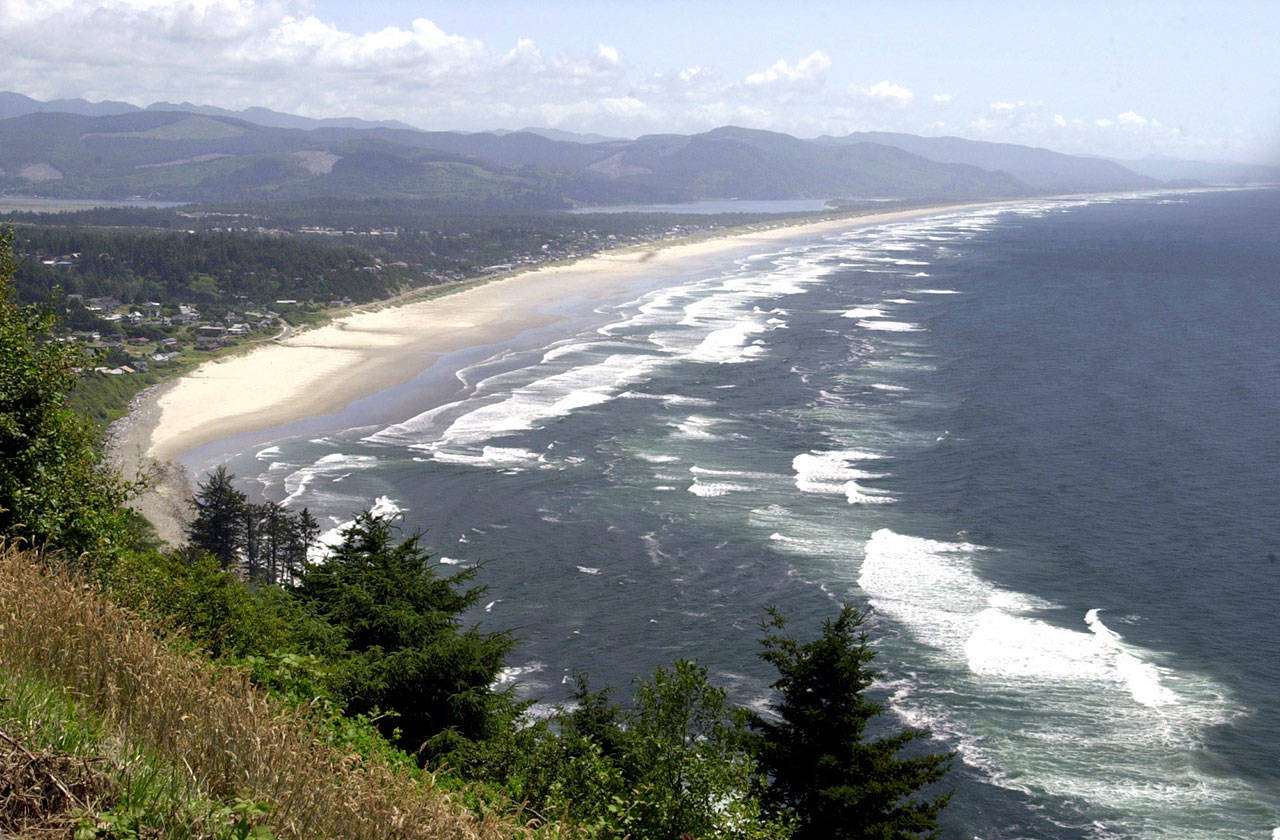By The Herald Editorial Board
The Trump administration may be among the most optimistic of prospectors if it believes the offshore coasts of Washington and Oregon hold vast fields of untapped oil and natural gas.
Currently, there is no offshore oil drilling off Washington’s coast, and hasn’t been for 50 years. There may not be much out there to tap.
The most recent resource assessment by the federal Bureau of Ocean Energy Management estimates that the combined offshore area for the two states could hold about 810 million barrels of “technically recoverable” oil and natural gas. That sounds like a significant amount, until one considers the daily consumption of petroleum products in the United States is about the equivalent of 20 million barrels. Drilling off the Pacific Northwest coast would feed U.S. consumption for about 40 days.
However, 810 million barrels of oil is very significant if even a small percentage of that is spilled into coastal waters and washes up onto our beaches.
Which is why it’s important that state officials and Northwest members of Congress are speaking with one voice against the proposed sale of about 50 offshore oil and gas leases in the Pacific, Atlantic and Arctic Oceans and the Gulf of Mexico.
Earlier this month, Washington state officials and the two states’ congressional delegations announced their intention to oppose the Trump administration’s offshore oil and gas leasing program in Northwest waters.
Sixteen members of Congress from the two states, including Washington Sens. Maria Cantwell and Patty Murray, 1st and 2nd Congressional District Reps. Suzan DelBene and Rick Larsen, all Democrats, and — notably — Republican Reps. Dave Reichert and Jaime Herrera Beutler wrote Interior Secretary Ryan Zinke to protest the Northwest’s inclusion in the lease program that “absent stakeholder support and directly contradicting economic and environmental factors of the region, is a waste of time, government resources and taxpayer dollars.”
And this week, Gov. Jay Inslee, Attorney General Bob Ferguson,Public Lands Commissioner Hillary Franz and tribal representatives discussed the steps that each would take if the lease program is allowed to proceed. Inslee said the state can consider tax increases on the industry and would work with ports and communities to block access to exploration and drilling support vessels. Franz said her office can assert its leasing authority on state-managed shorelines and aquatic areas. And tribal leaders said they would use their treaty rights to block the leases.
And Ferguson would add to his list of legal challenges to the Trump administration by filing a lawsuit that would argue the federal government hasn’t followed federal law in pursing the change in lease policy.
Helpfully, the Trump administration and Zinke may have provided a toehold for such a court challenge.
Last month, Zinke, shortly after announcing the lease program, said he had exempted Florida waters from the lease program following the objections of the state’s Republican Gov. Rick Scott. “I support the governor’s position that Florida is unique and its coasts are heavily reliant on tourism as an economic driver,” Zinke said in a statement.
Count it as coincidence that Zinke’s announcement followed just days after a meeting between Scott — who is contemplating a run for the U.S. Senate in 2018 — and President Trump at Trump’s Mar-a-Lago resort.
If #MeToo hadn’t been taken, many other coastal states would have tweeted it to argue for the same break Florida’s governor got.
An estimated 4.1 million visitors to Washington’s coast in 2014 generated $481 million for the state’s economy, Ferguson said in a news release. Beyond tourism, the state’s commercial fishing and shellfish industry added another $117 million that year.
Oregon can make an equal claim on the threat oil production could pose to its economy. Its Gov. Kate Brown made a similar request that her state be granted an exemption as well.
And that’s not to mention the incalculable value of the natural beauty of both states’ coasts.
To give one state a pass, Ferguson said, and not identify a process and the criteria through which other states could seek an exemption would ignore the regulatory framework that all states rely on.
The Department of Interior has demonstrated previously its preference to administer by fiat, as it did in using a slapdash process to reverse previous administrations on creation of national monuments and to cancel the review of a proposal to restore wild populations of grizzly bears in the North Cascades.
There’s yet one more reversal of Obama-era regulations Zinke is proposing that directly weighs on the proposed leases: the rollback of offshore drilling safety regulations put in place after the 2010 Deepwater Horizon oil rig disaster.
That disaster, which killed 11 workers and nearly 1 million seabirds and spilled 4.9 million barrels of oil into the Gulf of Mexico and onto its shorelines and estuaries, is all too fresh in our minds.
Talk to us
> Give us your news tips.
> Send us a letter to the editor.
> More Herald contact information.

























